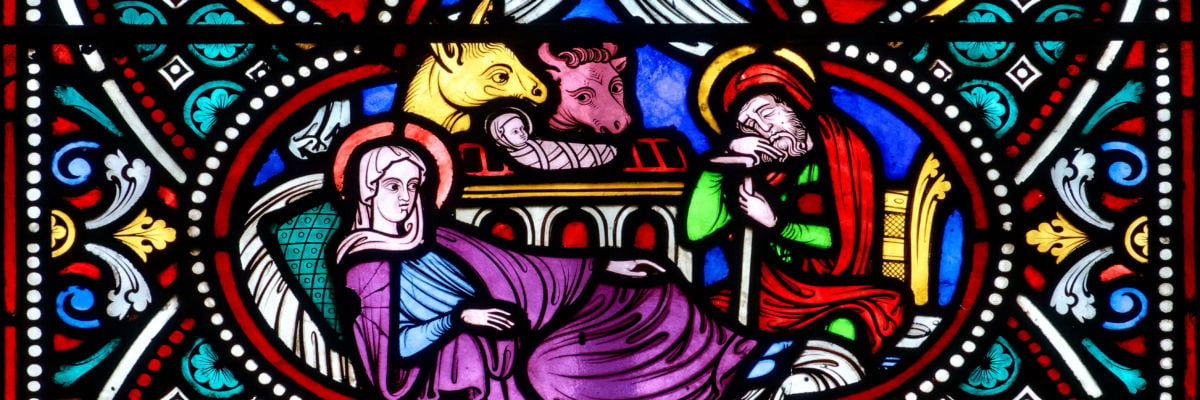
“We have seen his star in the East, and have come to worship him” (Matt. 2:2).
The Epiphany is a nice story. It’s the three kings, the three wise men, the three magi. Or, if you want to be very literal about it, as I was growing up, “the wise men”—Scripture tells us nothing about their number, and we get three from the three gifts (and tradition provides the names: Caspar, Melchior, Balthazar). Whether it was two or three or a dozen people actually making the journey, the point is that it’s a nice story. It sort of fills out the picture of Jesus’ birth so that it’s not just a message for the shepherds or the friendly beasts around the manger; Jesus is also relevant to the powerful and wise people of the world if they have the will and the insight to see. More importantly, Jesus is relevant to the whole world, not just to Israel.
But if you look a little more closely, the nice story of the magi is the start of what is very much not a nice story. At the end of our reading we heard that the wise men were warned in a dream not to return to King Herod. If you continue reading, you’ll find that St. Joseph is also warned in a dream, and so Jesus, Mary, and Joseph escape to Egypt. Meanwhile, Herod, threatened by the idea of a newborn king, orders the slaughter of every male child in Bethlehem. These children, whose number we do not know, are called the Holy Innocents, and the Church venerates them as saints. That is perhaps a strange thing, because we think of saints as those who have shown holiness in their lives. But saints and martyrs are first and foremost witnesses, storytellers, and those murdered children tell a story about Jesus that we may not want to hear.
It is this: Jesus is not here to solve all your problems. He is not here to make the world a better place. The world is a dangerous place, full of kings and tyrants of all sorts who will use violence against those who stand in their way. Following Jesus won’t keep us safe from them. Following Jesus—even being around Jesus or his followers—can bring those people out in the open. We speak of Jesus as the light of the world, but light deepens shadow. In the light of Christ the world is brighter, but it is also darker; it is more hopeful, but it is also more dangerous.
If you think about it, this is an inherent problem in the whole story of Christmas. There is, in the surrounding story, some predictive notions about what Jesus will do, but the bright spots in the story—the shepherds at Christmas, the wise men at the Epiphany—have really nothing to do with what Jesus does for people—for them or for us—and everything to do with who Jesus is: God in the flesh. The important thing, which the shepherds and the wise men all get, is not to start worrying about how this messiah is going to fix everything, but to get on your knees and worship.
This is hard to hear, because it’s easy to jump straight to the idea of the divine savior who takes away sin—or, in the version some of our friends might prefer, the social maverick who shows the true way of justice. In both instances, Jesus is here to do something for us. And baby Jesus—or toddler Jesus, which is probably a bit closer to the situation when the wise men arrive—can’t be any of these things. He’s just there.
This brings us to a message I’ve often heard and indeed repeated about Christmas, useful for children of every age: stop worrying about what you’re going to get, and think about what you can give. So often we like to say at Christmas that Jesus is God’s gift to us. There is great truth there—and yet, and yet . . . in the stories themselves, above all in the story of the magi, Jesus is the one receiving gifts, not giving them.
Jesus didn’t come first to fix things. He came to be worshiped.
As someone who’s spent a fair amount of time in ecumenical or secular institutions, I am deeply allergic to the juvenile assertion that all religions are basically the same, but I will dare to suggest that most religions agree on this one assumption: that it matters whom or what you worship, whom or what you adore, what you value above all other things. For some, it is important that no god be worshiped, that the things of this life be valued above all else. For the children of Abraham, the worship of God does not solve all our problems; nor does it do something for God, as if God somehow needed our worship. Worship orients us, though, to who we really are, and to what we are about. It turns us away from ourselves to the Good. It turns us from darkness to light.
So we celebrate Christmas first, as we march through the Church year, because before we can see Christ as a solution to a problem, we must see clearly that he is here. If he is here, he can be worshiped. And if he can be worshiped, if he is—despite suffering, the cross, and death—alive, then he can re-orient our lives, however strange or hopeless they may seem at the moment, toward the Good that we did not choose, the Good that appears when we least expect it, whether we are shepherds or wise men and kings.
It must seem strange to us that the early Christians would live or die based on little matters of worship: on whether or not they would offer incense to the emperor, or whether Christ was really present in the Eucharist. In the same way, we think it strange to imagine that an impoverished Christian today would keep worshiping God even when his prayers for a better life seem to go unanswered. But those are precisely the places where we, in our comfortable lives, have to look if we want to understand the logic of faith. It’s not about what God can do for us. It’s not about what we can do for God. It’s about seeing God, meeting God, and ultimately being swept up into the reality that is God. If you really get that, the world becomes a different place—both brighter and darker, both more dangerous and more wonderful.
“We have seen his star in the East, and have come to worship him.”



